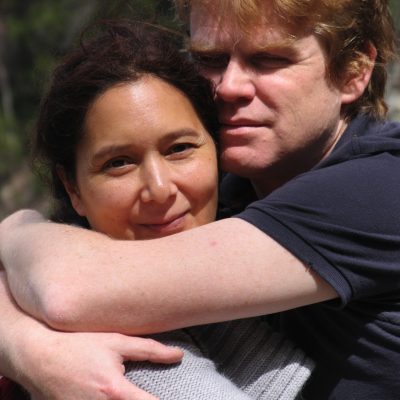Choose your Therapist with Care
Grief Therapy is Recommended
For those with loved ones who have been diagnosed with early age dementia, I would strongly consider seeking some professional help in the form of therapy. I didn’t take do it early enough and I think others close to Grace could have benefited from it.
Choosing a good grief therapist is an important decision that requires careful consideration. Here are some criteria, based on my lessons learnt, to keep in mind when selecting a therapist for grief.
Keep in mind that finding the right therapist may take time and effort. Don’t be afraid to ask questions and seek out multiple options until you find the therapist who is the best fit for you.

What to consider?
Training and qualifications: Look for a therapist who has specific training and experience in grief therapy. Ideally, the therapist should have a graduate degree in a mental health field and specialized training in grief counseling.
Approach to therapy: Consider the therapist’s approach to grief counseling. A good grief therapist should be empathetic, compassionate, and skilled in helping clients navigate the complex emotions associated with grief. They should also be knowledgeable about different
therapeutic approaches, such as cognitive-behavioral therapy, mindfulness-based approaches, or narrative therapy.
Experience working with grief: It’s important to choose a therapist who has experience working with grief and loss. Ask about the therapist’s experience working with clients who have experienced similar losses as yours and their approach to helping clients cope with grief.
Personal connection: It’s important to feel comfortable and safe with your therapist. Consider the therapist’s communication style, personality, and values. A good therapist should create a safe and supportive environment where you can express your feelings and work
through your grief. I once dealt with a real ‘battle axe’, who was just aggressive. Thankfully the sessions ended after two weeks, because she could not commit due to personal things she needed to resolve at home. I never should have paid the bill.
Availability and accessibility: Choose a therapist who is accessible and available to meet your needs. Consider their location,
availability, and whether they offer teletherapy or online counselling options. Face to face therapy made a huge difference to me, as opposed to doing something via Zoom.
Referrals and reviews: Seek referrals from friends, family, or medical professionals. You can also look for reviews and ratings
online to get a sense of the therapist’s reputation and quality of services.
- Ask for a referral from your loved one’s primary care physician or neurologist. They may be able to
recommend a therapist who specializes in dementia and grief counselling. - Check with your loved one’s insurance provider to see if they have a list of therapists who specialize in
dementia and grief counselling. - Search online for therapists who specialise in dementia and grief counselling in your area. You can use search engines like Google or specific directories like Psychology Today or GoodTherapy.
- Consider reaching out to local dementia support groups or organizations, , to see if they have any recommendations for therapists in your area.
You need more than sympathy: I worked with a wonderful lady, who got me in a calm and settled space for a short while. When I was juggling lots of priorities and felt overloaded. She was highly sympathetic to my situation and helped me make some really good decisions when
I was in the ‘eye of the storm’. Though over time I came to realise that I needed to learn and grow, getting outside of my comfort and fear
zones.
Consider reaching out to your local mental charity: If you cannot afford to fund your own private therapy considering reach out to the likes of Mind in the UK. Mind in Wiltshire, UK, had a scheme where by practitioners work on a pro bono basis (for public good at no cost) and each patient paid what they could afford. The proceeds went directly to Mind.
Different therapists at different points in time for different needs: If you are primary caregiver and close loved then, as the dementia progresses, the demands placed on you are going to change. Furthermore, you are also going to have to cope with whole range of grief related emotions. I gained the confidence to realise when a therapist’s value had been exhausted and it was time to end the therapy. Even
with my wonderful grief therapist we reached a point where we mutually concluded her therapy had run its course. There was a need for me to continue embedding what I had learnt.
Recommended therapists specialising in grief sought: If you know any good therapists with experience supporting those coping with
living grief and ambiguous loss then please let me know, including an outline as to why you are recommending the therapist.
As I want to publish a list of the best therapists across the world who can help those coping with the loss of someone to early age dementia.
